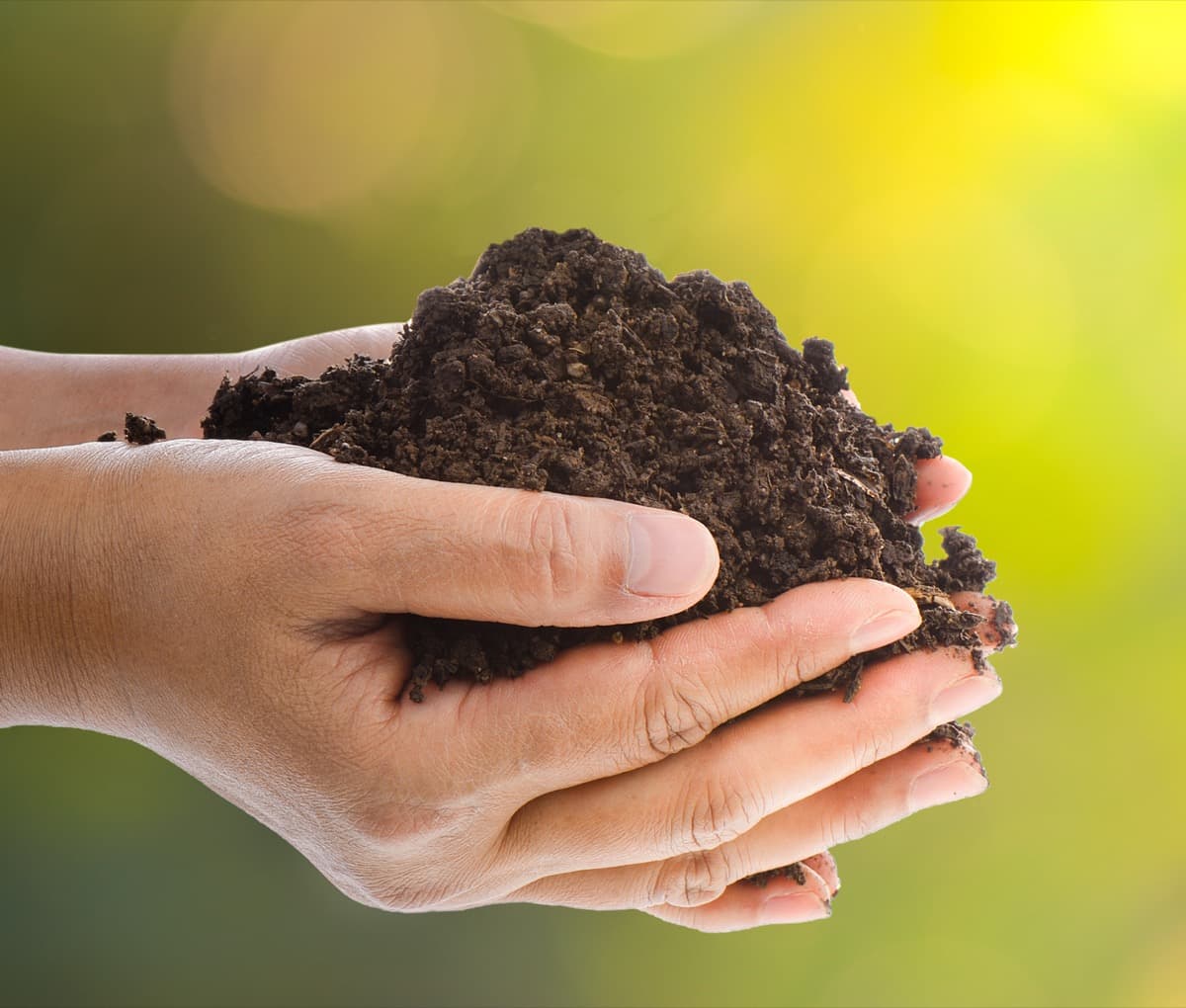Organic fertilizers have gained significant popularity recently as more farmers and gardeners seek sustainable and eco-friendly alternatives to traditional chemical fertilizers. Derived from plant and animal sources, organic fertilizers provide essential nutrients to plants while promoting a healthy soil ecosystem. Below we learn the advantages and disadvantages of organic fertilizers.

The Pros and Cons of Organic Fertilizers
Pros of Organic Fertilizers
Environmental Benefits
One of the organic fertilizers’ most significant advantages is their positive environmental impact. These fertilizers are derived from natural sources, which means they are biodegradable and have a lower risk of contaminating soil and water sources. On the other hand, chemical fertilizers can cause pollution through runoff and leaching, leading to water contamination and negative effects on aquatic ecosystems.
Soil Health
Organic fertilizers improve soil structure and fertility by adding organic matter and beneficial microorganisms. This helps create a healthy environment for plant growth, making it easier for roots to penetrate the soil, allowing for better nutrient and water uptake. Additionally, organic fertilizers enhance the soil’s ability to hold water, reducing the need for frequent watering.
Sustainable and Renewable
Organic fertilizers are produced from renewable resources, such as plant and animal waste, making them more sustainable than synthetic fertilizers, which rely on non-renewable resources like fossil fuels. This means that organic fertilizers can be produced indefinitely, reducing the strain on the environment and ensuring a continuous supply for future generations.
Balanced Nutrient Release
Organic fertilizers release nutrients slowly as microorganisms in the soil break them down. This gradual release of nutrients benefits plants, as it prevents nutrient overload and reduces the risk of nutrient leaching. It also means that plants have a steady supply of nutrients throughout their growth cycle, resulting in healthier and more robust growth.
Improved Plant Resistance
Plants grown with organic fertilizers are often more resistant to pests and diseases, thanks to the balanced and diverse nutrients they receive. Organic fertilizers promote the growth of beneficial microorganisms, which help protect plants from harmful pathogens. This reduces the need for chemical pesticides, which can harm both plants and the environment.
Enhanced Biodiversity
Organic fertilizers help promote biodiversity within the soil, as they encourage the growth of beneficial microorganisms, earthworms, and insects. This increased biodiversity can contribute to a more resilient ecosystem, helping to maintain soil fertility, improve nutrient cycling, and support pest control.
Reduced Soil Erosion
Healthy soil structure, promoted by organic fertilizers, can help reduce soil erosion. Improved soil aggregation and increased organic matter help to hold soil particles together, reducing the risk of erosion by wind and water. This can be especially beneficial in areas prone to erosion or with steep slopes.
In case you missed it: Benefits of Poultry Manure Fertilizer in Agriculture: Uses, When and How to Apply

No Synthetic Chemicals
Using organic fertilizers eliminates the need for synthetic chemicals, which can harm both humans and the environment. Synthetic fertilizers have been linked to various health issues and can contaminate groundwater, rivers, and other water sources. Organic fertilizers provide a safer alternative that reduces the risk of exposure to harmful chemicals.
Cons of Organic Fertilizers
Cost and Availability
One of the primary drawbacks of organic fertilizers is their cost. They can be more expensive than synthetic fertilizers, mainly due to the processing and transportation involved in their production. Additionally, organic fertilizers may not be as readily available as their chemical counterparts, especially in remote areas or regions with limited access to organic farming supplies.
Nutrient Imbalances
While organic fertilizers provide a wide range of nutrients, they may not always contain the precise nutrient ratios required for specific crops. This can lead to nutrient imbalances and deficiencies, which may negatively impact plant growth and yield. Farmers and gardeners may need to use additional supplements or amend the soil to address these imbalances.
Variable Nutrient Content
The nutrient content of organic fertilizers can vary depending on the source material and production methods. This makes it challenging to determine the exact nutrient composition of a particular fertilizer, which can lead to over- or under-application. Inaccurate application rates can result in poor plant growth, wasted resources, and potential environmental harm.
Slow Release of Nutrients
As mentioned earlier, organic fertilizers release nutrients slowly, which can be advantageous in some situations. However, this slow release can also be a drawback, as it may not provide enough nutrients for plants with high nutrient demands or in situations where rapid growth is desired. In such cases, additional fertilizer applications may be required, or alternative nutrient sources might need to be considered to meet the plants’ needs.
Labor and Time Intensive
Applying organic fertilizers can be labor and time-intensive compared to synthetic fertilizers. Organic fertilizers often require more frequent application and may need to be tilled into the soil. This can increase labor costs and the time required for soil preparation, which may not be ideal for large-scale farming operations or busy gardeners.
Potential Pathogen Contamination
Organic fertilizers, particularly animal manure-derived ones, can carry harmful pathogens if not properly treated or composted. These pathogens can pose a risk to human health, especially when used in vegetable gardens or on crops that come into direct contact with the soil. Using composted or treated organic fertilizers and following application instructions reduces this danger.
In case you missed it: How to Use Cow Urine as Natural Fertilizer for Your Garden Plants

Odor and Aesthetics
Organic fertilizers, especially those derived from animal sources, can have a strong odor. While this smell typically dissipates over time, it can be unpleasant for growers and their neighbors. Additionally, some organic fertilizers may not have the same visual appeal as synthetic fertilizers, making them less attractive for use in ornamental gardens or landscaped areas.
Inconsistent Quality
The quality of organic fertilizers can vary from batch to batch and between different suppliers. This inconsistency can make determining the optimal application rates difficult and may result in uneven plant growth. Growers may need to experiment with different products or suppliers to find the best organic fertilizer.
Storage and Handling Challenges
Organic fertilizers can be bulky and require more storage space than synthetic fertilizers. They may also have specific storage requirements to prevent decomposition, nutrient loss, or the attraction of pests. Handling organic fertilizers can also be more labor-intensive, as they often come in bulkier forms, such as compost or manure, rather than easy-to-apply granules or liquids.
Conclusion
In the end, the decision between organic and manufactured fertilizers may come down to personal preferences, money limitations, and the availability of resources. Some producers prefer combining organic and synthetic fertilizers. You may choose organic fertilizers that benefit your plants, the environment, and your financial line by carefully weighing their pros and downsides.
- Feed Your Flock for Less: Top 10 Tips to Save on Chicken Feed
- Ultimate Guide to Ossabaw Island Hog: Breeding, Raising, Diet, and Care
- Hatching Answers: The Top 10 Reasons Your Chickens Aren’t Laying Eggs
- Eggs and Economics: Breaking Down the Cost of Raising Backyard Chickens
- Defend Your Greens: Proven Methods to Keep Iguanas Out of Your Garden
- Ultimate Guide to Cinnamon Queen Chicken: A Comprehensive Guide for Beginners
- Ultimate Guide to California Tan Chicken: Breeding, Raising, Diet, Egg-Production and Care
- Ultimate Guide to Marsh Daisy Chicken: Breeding, Raising, Diet, and Care
- 10 Types of Chicken Farming Businesses You Can Start for Profits